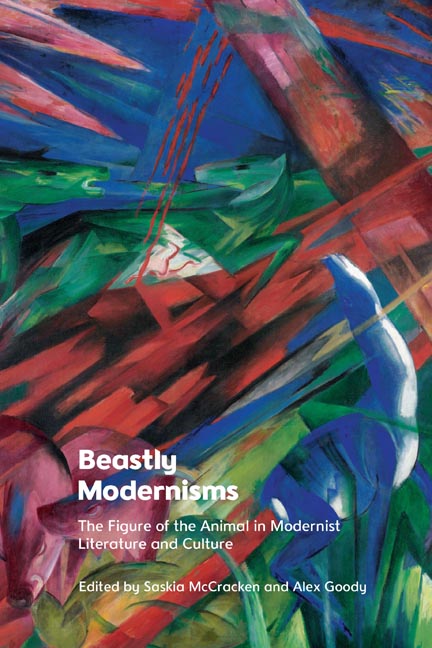Book contents
1 - Metamodernist Beasts, or Flush’s Future: Ceridwen Dovey’s Only the Animals and Sigrid Nunez’s Mitz: The Marmoset of Bloomsbury
Published online by Cambridge University Press: 21 October 2023
Summary
Flush: A Biography (1933) is the only work of fiction written by Virginia Woolf that leaves readers oriented towards an earlier era. Where her other novels end on or around the year of their completion, Woolf’s fictional biography of Elizabeth Barrett Browning’s cocker spaniel concludes with its protagonist’s death in June 1854. The list of ‘Authorities’ that directly follows the description of Flush’s demise reinforces the book’s historical gaze by listing the mid-nineteenth-century publications Woolf relied on. Those ‘who would like to check the facts or to pursue the subject further’ should, we are directed, consult two poems by Barrett Browning, ‘To Flush, My Dog’ (1844) and ‘Flush, or Faunus’ (1850), various editions of the Brownings’ letters, and Thomas Beames’s account of slums in The Rookeries of London (1850) (Woolf 1998: 151). As Linden Peach, Jane Goldman and I detail in the Cambridge Edition, Woolf’s misleading qualification ‘that there are very few authorities for the foregoing biography’ (1998: 151) has thrown readers off the scent of the numerous other Victorian sources she drew upon, from Hugh Dalziel’s British Dogs: Their Varieties, History and Characteristics (1888), key for her discussion of spaniel breeds, to Mrs Sutherland Orr’s Life and Letters of Robert Browning (1891) and A. G. L’Estrange’s The Life of Mary Russell Mitford (1870), which provide some of the details of Flush’s human companions. The extent of Woolf’s research not only puts paid to the idea that Flush: A Biography was merely a joke, but demonstrates that she was interested in rescuing him from obscurity and inserting him into his rightful place in (literary) history. As Woolf herself writes in one of her own notes on the text: ‘The whole question of dogs’ relation to the spirit of the age, whether it is possible to call one dog Elizabethan, another Augustan, another Victorian, together,’ she adds with characteristic humour, ‘with the influence upon dogs of the poetry and philosophy of their masters, deserves a fuller discussion than can here be given it’ (1998, 114).
- Type
- Chapter
- Information
- Beastly ModernismsThe Figure of the Animal in Modernist Literature and Culture, pp. 23 - 24Publisher: Edinburgh University PressPrint publication year: 2023



